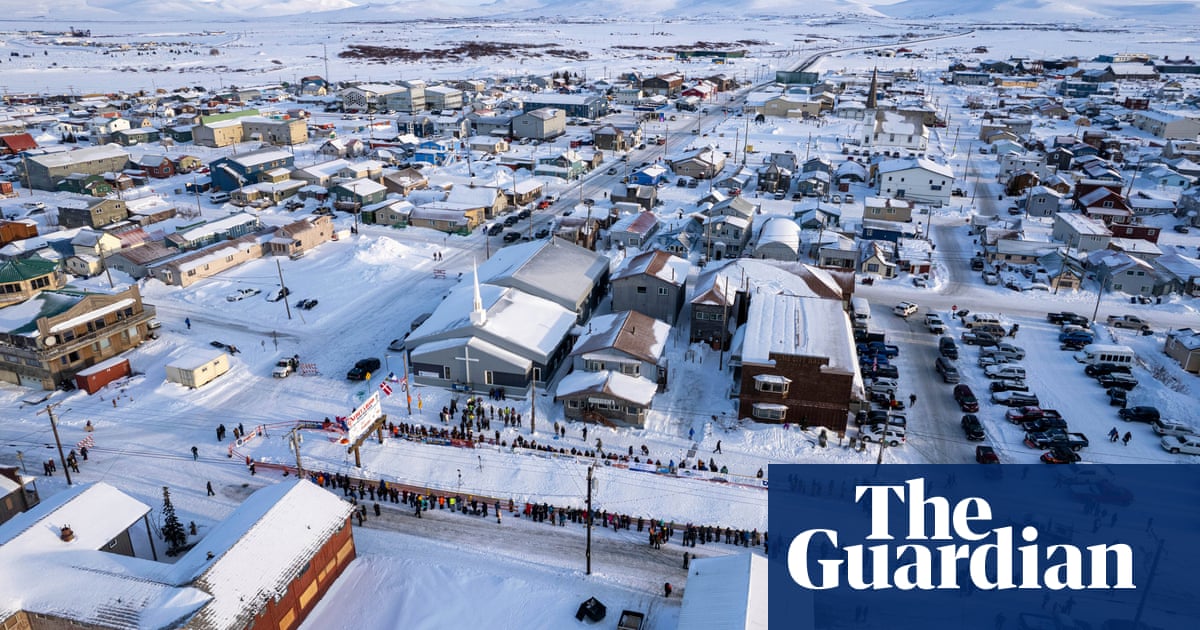
Explosion heard across Beirut as Israel carries out airstrike in nearby Jiyeh
William Christou
Israel carried out an airstrike in Jiyeh, a seaside town 20 kilometers south of Beirut late Tuesday night.
The strong explosion was heard across Beirut and the surrounding mountains.
The target of the strike was unknown, but a video filmed by local residents showed a car engulfed in flames, near a gas station.
The airstrike comes off the back of two days of intense Israeli airstrikes across Lebanon, including the nation’s capital city, killing 569 people.
Key events Show key events only Please turn on JavaScript to use this feature
This blog is now closing. You can read our full report on Israel’s attack on Lebanon here. We’ll be back soon with the latest live updates.
Here’s our earlier video of the aftermath of the attack on Dahieh in Beirut, in which senior Hezbollah commander Ibrahim Qubaisi was killed along with five other people:
William Christou
Hassan waited until the last minute to flee. As Israeli warplanes thundered overhead and bombs began to fall on the forests surrounding his home town of Deir al-Zahrani, south Lebanon, on Monday morning, he told himself he still had some time. For almost a year the town, 12 miles from the Israel-Lebanon border, had been mostly spared from the fighting between Israel and Hezbollah that had engulfed much of south Lebanon.
The bombs grew closer. His neighbours began to get calls from unknown numbers with a recorded message, the voice speaking classical Arabic with a strange accent: “If you are in a building where there are Hezbollah weapons, distance yourself from the village.” Hassan had no idea if the homes around him contained weapons. Houses in the village began to get hit.
“Civilians, houses, they hit everything. When they started striking civilians, we had to flee. A few of my relatives were killed,” Hassan, 23, said, sitting in a school in Dekwaneh, a suburb north of Beirut, which had been converted into a shelter for displaced people less than 24 hours earlier.
Dier al-Zahrani was no longer safe as Israel carried out a devastating aerial barrage on swathes of south Lebanon and the Beqaa valley that killed 558 people, injured 1,835 and pushed tens of thousands to flee their homes.
It was Lebanon’s deadliest day in almost 50 years, bringing the death toll of the fighting between Hezbollah and Israel in September to more than 1,200, exceeding that of the brutal 2006 war between the two.
Hassan and the six other members of his family grabbed a few possessions, crammed into a BMW sedan and headed towards Beirut.
The United States has approved the sale of $740 million in Stinger missiles to Egypt, which has become an increasingly close partner over the Gaza crisis despite concerns on rights, Reuters reports.
The State Department informed Congress that it was approving the sale of 720 Stinger missiles for use on existing systems.
The sale will help “improve the security of a friendly country that continues to be an important force for political stability and economic growth in the Middle East,” a State Department statement said.
Congress can still block the sale, but such attempts are usually unsuccessful.
The US has also continued to supply billions of dollars worth of weapons to Israel, even while calling on it to agree to a ceasefire in Gaza and stop escalating its conflict with Lebanon.
Israel has also continued its deadly attacks on Gaza on Tuesday evening, the Palestinian news agency Wafa is reporting, killing at least seven Palestinians in the north of the strip.
Israeli warplanes targeted a group of civilians in Mashrou’ Beit Lahia, killing two and injuring others, Wafa reported. In the north-west of Gaza Israeli warplanes targeted an apartment killing five civilians, including a woman and two children. Several others were missing and others injured, the agency reported.
It is not possible to independently verify reports from Gaza because Israel does not allow foreign journalists into Gaza. It has also been accused of targeting local Palestinian journalists as part of its campaign, with at least 116 journalists and media workers killed in Gaza as of Tuesday according to the Committee to Protect Journalists.
Hezbollah has confirmed the death of senior commander Ibrahim Qubaisi in an airstrike on Beirut.
The Israeli military had earlier claimed to have killed him in a strike on Dahieh, Hezbollah’s stronghold in Beirut, on Tuesday while Lebanon’s health ministry confirmed that six people were killed in the attack and 15 injured.
The Lebanese foreign minister Abdallah Bou Habib also said that the number of Lebanese displaced by the fighting had soared from around 110,000 before this week’s Israeli attacks to “approaching half a million” now.
Noting that Israel had also seen displacement in the northern areas, he said, “All for what?”
“It’s a very difficult situation – a very expensive, costly situation – in a time that the country is still weak economically,” he said.
Lebanese foreign minister Abdallah Bou Habib has expressed disappointment with US President Joe Biden’s remarks about the escalating crisis between Lebanon and Israel, but said he held out hope that Washington could still intervene to help. Reuters quotes him as saying of Biden’s earlier UN speech:
It was not strong. It is not promising and it would not solve this problem … I [am] still hoping. The United States is the only country that can really make a difference in the Middle East and with regard to Lebanon.
Habib was speaking at an event hosted by the Carnegie Endowment for International Peace.
This is Helen Livingstone taking over the blog from Léonie Chao-Fong.
Summary of the day so far
Here’s a recap of the latest developments:
-
Thousands of Lebanese people fled the continuing bombing in the country’s south on Tuesday as Israel said it was conducting “extensive strikes” on Hezbollah targets, including on the southern suburbs of Beirut, for the second day in a row and third time this week. Israel carried out an airstrike in Jiyeh, a seaside town 20 kilometers south of Beirut late Tuesday night. The strong explosion was heard across Beirut and the surrounding mountains.
-
Israel’s military said an attack in Dahieh, Hezbollah’s stronghold in Beirut, on Tuesday had killed Ibrahim Muhammad Qubaisi, also known as Abu Issa, the commander of Hezbollah’s rocket and missile division. Lebanon’s health ministry said in a statement that the “Israeli enemy raid on Ghobeiri in Beirut’s southern suburbs killed six people and injured 15”.
-
At least 569 people were killed from two days of Israeli airstrikes targeting Hezbollah, according to the latest death toll by Lebanese health authorities. The death toll includes 50 children and 94 women. On Monday, Lebanon recorded more casualties than in any other single day since the 15-year civil war that started in 1975. Israel struck hundreds of Hezbollah targets in southern Lebanon overnight and during Tuesday.
-
The Israeli prime minister, Benjamin Netanyahu, vowed to maintain the offensive against Hezbollah and said the group’s leader, Hassan Nasrallah, was leading Lebanon “to the edge of the abyss”. Israeli officials have said the recent rise in airstrikes on Hezbollah targets in Lebanon is designed to force the group to agree to a diplomatic solution, cease its own attacks on Israel or unilaterally withdraw its forces from close to the contested border.
-
Israel Defense Forces (IDF) spokesperson Daniel Hagari said Israel is striving for its current military campaign against Hezbollah in Lebanon to be as short as possible. But in his briefing with reporters on Tuesday, he added that Israel is also prepared for the operation to take time. Israel’s defence minister, Yoav Gallant, said Hezbollah has suffered “extremely severe blows” and Israel has “more strikes ready”.
-
Hezbollah said it had targeted several Israeli military targets including an explosives factory about 35 miles (56km) into Israel and the Megiddo airfield near the town of Afula, which it attacked three separate times. Officials in Israel said more than 50 missiles and rockets were fired from Lebanon into northern parts of the country on Tuesday morning, most of which were intercepted.
-
Syrian air defences intercepted suspected Israeli missiles targeting the city of Tartous, Reuters reported, citing Syrian army sources. It comes after reports of multiple explosions heard over the Mediterranean port city early on Wednesday.
-
The UN secretary general, António Guterres, has told world leaders that Lebanon is on the brink of becoming a second Gaza, adding the crisis has “become a non-stop nightmare that threatens to take the whole region down”. In response, Israel’s defence minister, Yoav Gallant, accused the UN on Tuesday of not fulfilling its obligations in preventing rocket attacks into Israel by Hezbollah.
-
The EU’s foreign policy chief, Josep Borrell, described the escalating conflict between Israel and Hezbollah as almost a “full-fledged war”. World leaders gathered in New York for the opening of the 79th UN general assembly as diplomatic efforts appear to have had little impact so far on the tensions on the border between Israel and Lebanon.
-
Israel’s ambassador to the UN, Danny Danon, said his country is open to ideas for de-escalating the conflict in Lebanon. “We are not eager to start any ground invasion anywhere ... We prefer a diplomatic solution,” Danon told reporters on Tuesday.
-
Two staff members of the UN’s refugee agency (UNHCR) were among the 558 people killed in Lebanon on Monday, the UN high commissioner for refugees, Filippo Grandi said. The UN agency said it was “outraged and deeply saddened by the killing of two beloved members of the UNHCR family in Lebanon” and warned that the protection of civilians is a must under international humanitarian law.
-
Nearly 30 Palestinians were killed in Israeli airstrikes in Nuseirat and Bureij camp refugee camps in central Gaza on Tuesday, according to hospital officials. A total of 29 Palestinians, including 14 children and 6 women, died as a result of the Israeli strikes on Tuesday, officials at Awda hospital said.
-
The US president, Joe Biden, addressed the risk of a potential full-scale war in Lebanon. During an address to the United Nations general assembly on Tuesday, Biden said that a “full-scale war is not in anyone’s interest” and added that “even though the situation has escalated, a diplomatic solution is still possible.”
-
Britain is moving 700 troops to Cyprus to be ready for an emergency evacuation of UK citizens from Lebanon. The UK prime minister, Keir Starmer, called for “restraint and de-escalation” at the border between Lebanon and Israel. Starmer made an unfortunate slip-up during his Labour party conference speech on Tuesday, calling for the return of “sausages” from Gaza.
-
The Turkish president, Recep Tayyip Erdoğan, called for coercive UN measures against Israel to be put on the agenda, including the use of force against Israel. Erdoğan, in his UN general assembly speech, accused the US of continuing to arm Israel so it can continue its massacres when in public it pretends it is looking for a ceasefire.
Explosion heard across Beirut as Israel carries out airstrike in nearby Jiyeh
William Christou
Israel carried out an airstrike in Jiyeh, a seaside town 20 kilometers south of Beirut late Tuesday night.
The strong explosion was heard across Beirut and the surrounding mountains.
The target of the strike was unknown, but a video filmed by local residents showed a car engulfed in flames, near a gas station.
The airstrike comes off the back of two days of intense Israeli airstrikes across Lebanon, including the nation’s capital city, killing 569 people.
An Israeli strike has hit the Lebanese town of Jiyyeh for the first time, Reuters reported, citing two security sources.
Jiyyeh is a seaside town 75 km north of the border with Israel, 23 km south of Beirut.
The BBC’s Nafiseh Kohnavard reported hearing an strong explosion:
The explosion we heard in Beirut has come from Saadiyat neighbourhood in Jiyeh, about 20 min drive from Beirut
It was a strong explosion

Rowena Mason
The UK prime minister, Keir Starmer, said the government was “ramping up the contingency plans” to rescue British nationals as he urged Israel and Lebanon to “pull back from the brink”.
Speaking from a flight to New York, where he will discuss Lebanon with world leaders at the United Nations general assembly, Starmer said:
The most important message from me this evening is to British nationals in Lebanon, to leave immediately and I just want to reinforce that.
It is important that we be really, really clear: now is the time to leave. More broadly, I am worried about the situation and I think we need to be clear we need de-escalation, we need a ceasefire, we need to pull back from the brink.
UK moves 700 troops to Cyprus ready to evacuate Britons from Lebanon

Rowena Mason
Britain is moving 700 troops to Cyprus to be ready for an emergency evacuation of UK citizens from Lebanon.
The UK government said military teams were moving there to further support British nationals in Lebanon, where Israel has been bombarding the south of the country.
The Royal Air Force also has aircraft and helicopters on standby to provide support if necessary.
It is the first phase of contingency plans for Lebanon, as the government seeks to avoid the chaos seen when British nationals were evacuated from Afghanistan in 2021.
The military teams will be supported by Border Force and Foreign Office officials.










 English (US)
English (US)